Veni, Vidi and Vici grants awarded to the University of Groningen in 2022
Grants awarded by the Netherlands Organisation for Scientific Research (NWO, Innovational Research Incentives Scheme).
Vici awards
Prof. Jan-Willem Romeijn - Gold rush in the data mine

The research for which Prof. Romeijn been awarded the Vici award is entitled 'Gold rush in the data mine.' Psychiatry and psychology make increasing use of data science methods. This project investigates these methods by using insights from the philosophy of science. The research is innovative in that it combines a mathematical understanding of the methods with knowledge of a scientific context in which these methods are applied, namely psychopathology.
Prof. Steven Hoekstra - Searching for missing antimatter with trapped molecules
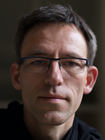
Prof. Hoekstra 's research carries the title 'Searching for missing antimatter with trapped molecules.' By performing a precision measurement on a cloud of molecules, captured and held by electric fields, we can test the Standard Model of particle physics. This is needed because it fails to explain how we (and all the matter around us) have emerged from the Big Bang.
Read more on Steven Hoekstra's research
Prof. Karina Caputi - The First Steps of Galaxies
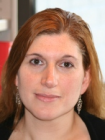
The research project of Prof. Caputi has been named 'The First Steps of Galaxies.' This Project will investigate the first steps of galaxy evolution as it has never been possible before, with the largest space telescope ever built: the James Webb Space Telescope.
Prof. Marcel van Vugt (UMCG) - An unfinished symphony: incomplete DNA replication as a therapeutic target in cancer
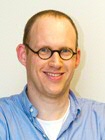
Cancer cells often initiate cell division before their DNA has been fully copied. Intriguingly, specialized DNA repair pathways resolve these problems, while cells undergo mitosis. This project will investigate these molecular mechanisms and explore how to target them as a potential therapeutic approach for hard-to-treat cancers.
Prof. Gerard Koppelman (UMCG) - Early diagnosis and targeted treatment of the onset of childhood asthma
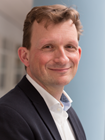
Asthma often starts in the first years of life, yet current methods do not allow for the diagnosis or treatment of asthma at such a young age. This project aims to diagnose asthma using DNA tests on nasal cells. Treatment of asthma inception will be targeted to airway cells involved in asthma inception.
Vidi Awards
Dr Simon Friederich - Saving reality with exotic causality
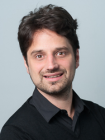
Quantum theory is the framework for all modern physics. As such, it is extremely successful. But that success is puzzling because quantum theory seems in tension with an idea that science otherwise takes for granted: that there is a single objective reality. This research sets out to fulfil a hope of Einstein: to develop an interpretation of quantum theory as an unproblematic probabilistic theory of a single reality.
Zoltán Lippényi, PhD - Do corporate boardroom quotas impact gender equality beyond leadership?
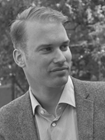
A growing number of European countries adopt corporate boardroom quota’s to ensure a more equal representation of women in leadership positions. It is unknown in what ways quota’s impact inequality in earnings and job careers between men and women beyond the leadership of large enterprises. This research project creates a new data infrastructure linking administrative data and surveys to map out multiple pathways how the impact of quota’s trickle down within organizations and spill over within the business community.
Dr Maria Mazzoli - Word formation in polysynthetic languages
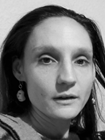
Polysynthetic languages can build very complex words which translate as entire sentences in languages like English and Dutch. Little is known about how these languages form new complex words based on established language patterns. This project surveys three polysynthetic languages, to check whether the productivity of word formation patterns is related to their levels of activation in language processing.
Prof. Sofia Ranchordás - Vulnerability in the Digital Administrative State
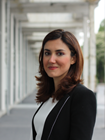
Digital government often incorrectly assumes that citizens have access to the Internet, have average literacy and digital skills, and can exercise their rights before public bodies. However, at some point in their lives most citizens will struggle with exercising their rights before government, particularly when they are required to engage with complex digital forms. This project conceptualizes the concept of administrative vulnerability as a new form of inequality and investigates how this problem can be solved.
Dr Ward Romeijnders - Promising algorithms for supporting decision making under uncertainty
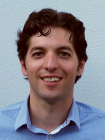
Een grote onzekerheid voor beslissingsnemers is dat onbekend is wat de toekomst brengt. Met wiskundige technieken is echter op basis van trends, kansverdelingen en scenario’s een optimale beslissing te berekenen waarmee kosten en risico’s beperkt worden. Dit kan een aanzienlijke hulp zijn bij beslissingen waar grote belangen op het spel staan, maar het is met de huidige stand van de wetenschap niet te realiseren. Onderzoekers van de Rijksuniversiteit Groningen proberen nu op basis van een slim idee veelbelovende algoritmen te ontwikkelen. Deze worden vervolgens toegepast op het ontwerpen van een waterstofketen in Noord-Nederland en op aansprakelijkheidsbeheer voor pensioenfondsen.
Prof. Marie-José van Tol (UMCG) - Take it personally: A cognitive neuroscience approach to getting a grip on depression

Complete recovery in daily life functions is difficult to obtain after a depression. Staying focused and getting things done remains challenging for long, which puts an individual at risk for relapse. This project aims to elucidate how the brain can enter a focused mode more easily and investigates how setting important personal goals can help achieve that. This could help to recover fully and to prevent relapse.
Dr Sandy Schmidt - Teaching enzymes new tricks
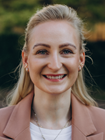
The pharmaceutical and chemical industries are highly polluting industries. The use of nature’s catalysts (enzymes) can play a major role in solving this problem. Yet, several traditional chemical reactions cannot be performed by existing enzymes. This project aims to expand the catalogue of enzymes and teach them new tricks to manufacture pharmaceuticals, fine chemicals, and cosmetics of our everyday life in a sustainable way.
Veni Awards
Dr Joost van de Brake - How to manage multiple team memberships
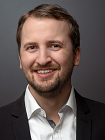
Many people work in multiple teams at the same time. Yet we know surprisingly little about the consequences of this work practice for employee wellbeing and performance. The proposed project examines why and when working in multiple teams has positive or negative effects. In doing so, I will not only look at the total number of teams in which a person is active, but also examine how these teams differ from each other.
Dr Daniel te Kaat - The Real Effects of Non-Conventional Monetary Policy: A New Portfolio Channel
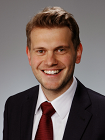
Following the global financial crisis, various central banks expanded their set of non-conventional monetary policy instruments. The academic literature studying the impact of these instruments on the real economy mainly focuses on the transmission via increased credit supply. However, to what extent and through which channels do these instruments affect economies with declining credit volumes, as in the case of the euro area post-2008? To answer this question, the proposed research studies unconventional monetary policy transmission outside the credit market through a household portfolio rebalancing channel
Dr Susan Niessen - Beyond black boxes and biases: Using simple and transparent algorithms to accomplish fair and valid assessment in organizations
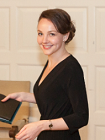
Information derived from psychological assessments is often interpreted intuitively, which results in suboptimal and biased decisions. I investigate if the use of simple, transparent algorithms results in more valid and fairer assessment. This project advances insights into test use by investigating how such algorithms can best be designed and used.
Dr Charlotte Vrijen - The bright side of life: understanding the origins of optimism
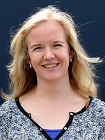
Optimists are physically and mentally healthier and happier than pessimists. Where do individual differences in optimism come from? I investigate to what extent and how parents transmit their optimism to offspring. My studies increase understanding on the origins of optimism and may inform research on how to raise optimistic children.
Dr Frank Klont - Exposure Analytics: molecular evidence of daily-life chemical exposures

Humans are exposed to numerous chemicals every day, for example through our food, environment, and potential medical treatments. Exposures are typically studied using questionnaires thereby relying on how well we remember past exposures. This project aims to provide molecular evidence of exposures to better study their impact on health and disease.
